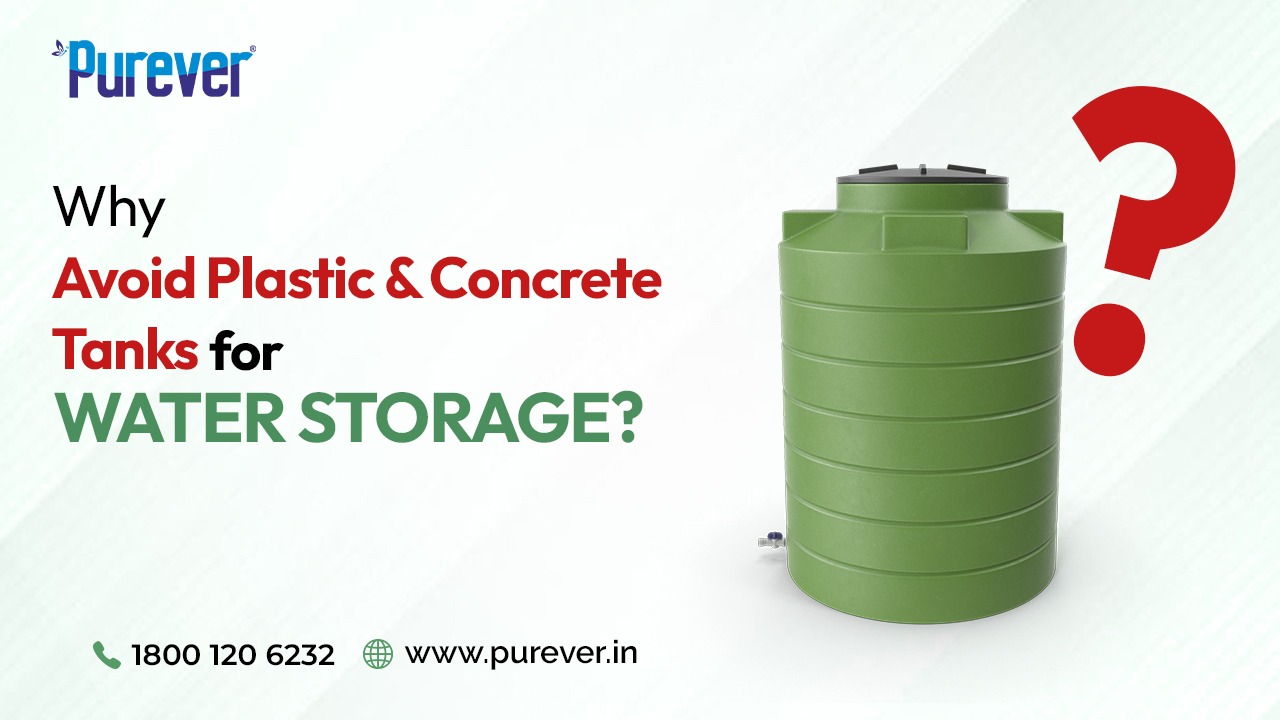Selecting the most appropriate material for water storage tanks is a difficult process. Plastic and concrete tanks have their disadvantages mentioned here in this blog. Let’s look at the advantages of stainless steel or SS water storage tanks and why we must avoid plastic and concrete tanks for storing water.
Health Concerns
Plastic tanks may cause health issues. Some elements in the plastic can dissolve into the water making it poisonous to consume. This contamination may tend to affect your health.
Concrete tanks have various issues. Being able to leach lime, they can change the pH level of the water. With use, plastic and concrete wear out over time hence, jeopardizing water quality to a greater extent.
Therefore, one has to decide on a safer option as well. There is no better option than an SS commercial water tank.
Durability Issues
Plastic tanks are not long-lasting. They are affected by direct exposure to sunlight which results in the formation of cracks and splits on their surfaces. This reduces their lifespan.
Concrete tanks, in general, are more durable than plastic ones and still contain structural problems. They crack and start excreting water where they are not supposed to. Often, to fix these leaks one would need to incur additional expenses and make some adjustments that are quite impractical.
SS water storage tanks, on the other hand, are more durable since they are made from scratch-resistance material. They can survive extreme temperatures and are generally financially wiser.
Environmental Impact
The problem of plastic pollution in the environment is well known. Tanks made from plastic are also responsible for this because the plastic is not biodegradable.
Working on concrete also impacts the environment badly. It releases a great amount of carbon monoxide which negatively influences the climate. It is very important to go for sustainable materials to save our environment.
Stainless steel is a much more sustainable material to work with. It can be recycled and it constitutes little harm to the environment. So, you may go for a custom SS water tank in place of a plastic or concrete tank.
Maintenance Challenges
It can be quite demanding to manage or maintain plastic tanks. They easily become blocked by algae and bacteria thus posing a lot of challenges when it comes to cleaning.
It’s very important to inspect a concrete tank regularly to identify early signs of leakage. This means that repairs can be a costly affair and at the same time they are likely to take a long time.
On the other hand, SS water storage tanks require relatively little maintenance which makes them more suitable for use. This helps to fight off algae and bacteria formation, and in the long run, you will not have to spend so much time cleaning them.
Better Alternatives
The choice of SS water storage tanks has some advantages. They offer purified water, which is safer, more hygienically required as compared to other water sources, and have a low maintenance cost. They are also long-lasting and do not have any negative effects on the environment. Consider these options:
Commercial Water Tank: Used for all sectors that require water storage for large capacities.
Custom SS Water Tank: Offering the flexibility and dependability required and designed for certain application needs.
Final Thoughts
The above types of storage tanks – namely plastic and concrete ones – have their health effects, durability problems, and most importantly, environmental impacts. They also require more effort for maintenance. This is why a custom SS water tank and other tanks made of stainless steel are relatively safer, durable, and eco-friendly compared to plastic water tanks.
Purever has a range of high-quality SS water storage tanks to provide SS water storage facilities. It offers durable and safe water tanks made of stainless steel. That is why consumers should opt for Purever for smooth and long-term performance to fulfill the requirements of a responsible water storage solution.

